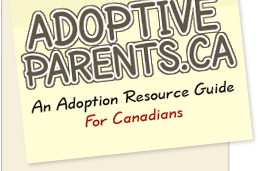|
Custom adoption is an open process that
is recognized in British Columbia's Adoption Act. According
to the Ministry of Children and Family Development's web site,
the agency supports the desire of First Nations and Aboriginal
Communities to ensure Aboriginal children in care are raised
with Aboriginal families whenever possible keeping them connected
with their extended family and community.
Custom adoption provides greater choice
when considering permanency options for Aboriginal children
in continuing care. This enables Aboriginal families, organizations
and communities to use a culturally appropriate way of sharing
in the permanency planning for Aboriginal children.
Custom adoption facts:
- Custom adoption is an open process
that involves many people in a child's life, including birth
parents, extended family, the Aboriginal community and those
with a significant relationship to the child.
- Custom adoption has the same effect
of an adoption order under the Adoption Act when the court
makes this declaration pursuant to an application under
section 46 of the Adoption Act.
- Custom adoption is a permanency
option that can be explored with birth parents voluntarily
planning adoption under the Adoption Act.
- Custom adoption of a child in continuing
custody proceeds when custody of the child is transferred
to prospective adoptive parents, under section 54.1 of the
Child, Family and Community Service Act (CFCSA), if eligibility
criteria are met.
- Financial assistance may be available
to eligible families who have had custody of a child transferred
to them under section 54.1 of the CFCSA.
- An adoption order under the Adoption
Act, or the recognition of a custom adoption by a court
does not affect any rights a child may have as an Aboriginal
person.
- The court has identified criteria
that must be met before it will declare that a custom adoption
has occurred.
- Prospective adoptive parents of
a child placed for adoption by birth parents, or guardians
of a child whose custody is transferred from the director
under section 54.1 CFCSA, work directly with the Band, First
Nations or Aboriginal communities to meet the requirements
of the court.
Legal advice/assistance:
It's recommended to prospective adoptive
parents and person(s) with custody of a child(ren) retain
a lawyer to help them in their application to have a custom
adoption recognized. It is the responsibility of the court
to provide guidance about what criteria is required by the
court to person(s) making application to the court to have
a custom adoption recognized under section 46 of the Adoption
Act.
What criteria does the court require?
The court has identified factors to consider
when it's being asked to declare, under section 46 of the
Adoption Act, that a custom adoption has occurred. Based on
what the court has identified the "Practice Standards
and Guidelines for Adoption" lists possible criteria
that could be expected by the court.
Possible criteria include:
- consent of the birth and adopting parent(s);
- child has been voluntarily placed with
the adopting parent(s);
- adopting parent(s) are indeed native
or entitled to rely on native custom;
- rationale for native custom adoptions
is present; and,
- the relationship created by custom
must be understood to create fundamentally the same relationship
as that resulting from an adoption order under Part 3 of
the Adoption Act.
How does the court determine the
cultural practices of a First Nation or Aboriginal community?
First Nations and Aboriginal communities
outline their own cultural practice of Aboriginal peoples
raising a child by a person who is not the child's parent.
Status under the Indian Act, trust
funds and inheritance:
If there are questions or concerns about
a person's status under the Indian Act, trust funds and/or
inheritance, contact:
Indian and Northern Affairs
British Columbia Region
1138 Melville Street
PO Box: Suite 600
Vancouver, British Columbia, V6E 4S3
For further information about custom adoption
of a child in continuing care, contact:
The Deputy Director of Adoption in your region call Inquiry
BC @ 1 800 663-7867 for regional contact information.
Although ministry-arranged adoption,
transfer of custody and custom adoption (when recognized by
the court under section 46 of the Adoption Act) look very
similar in many respects, they are separate legal processes
that have significant differences.
|
